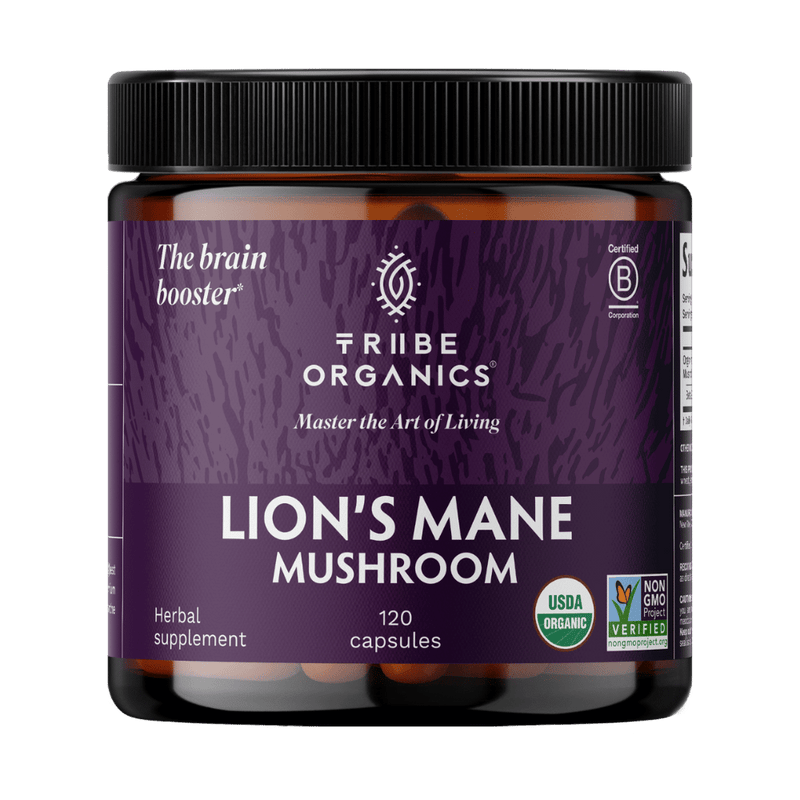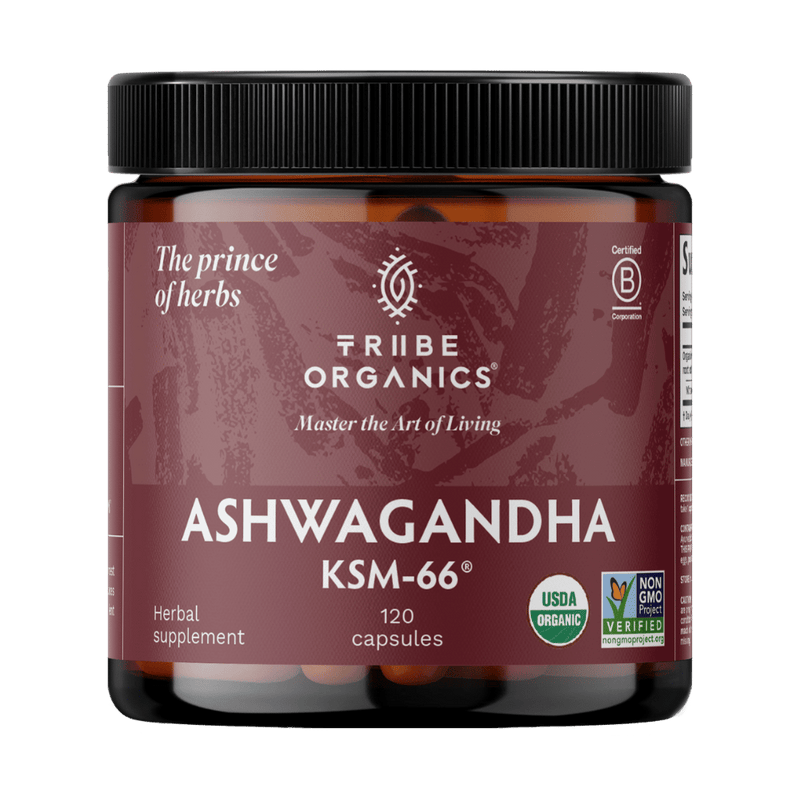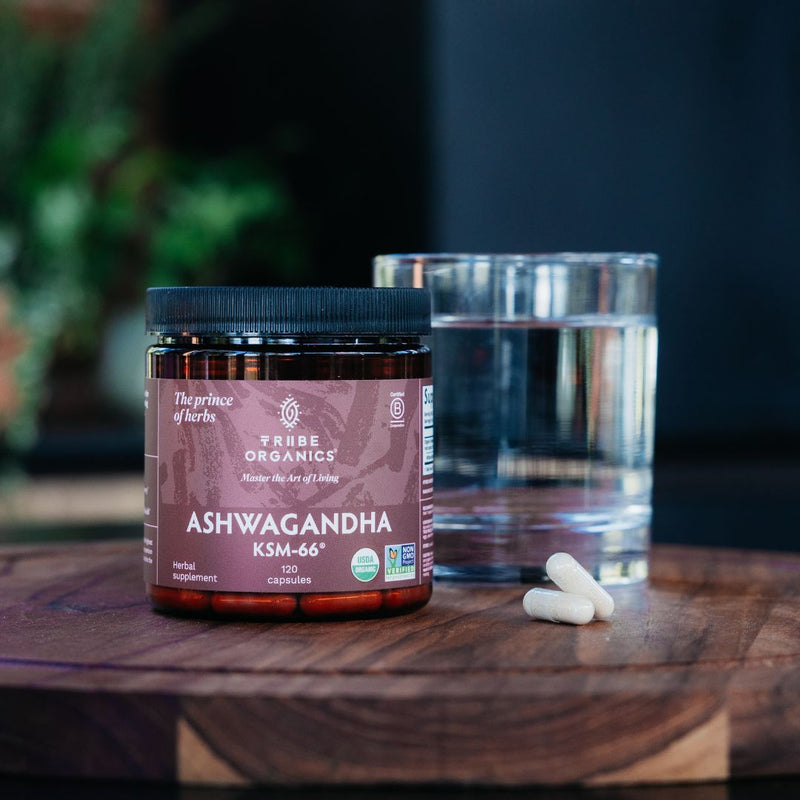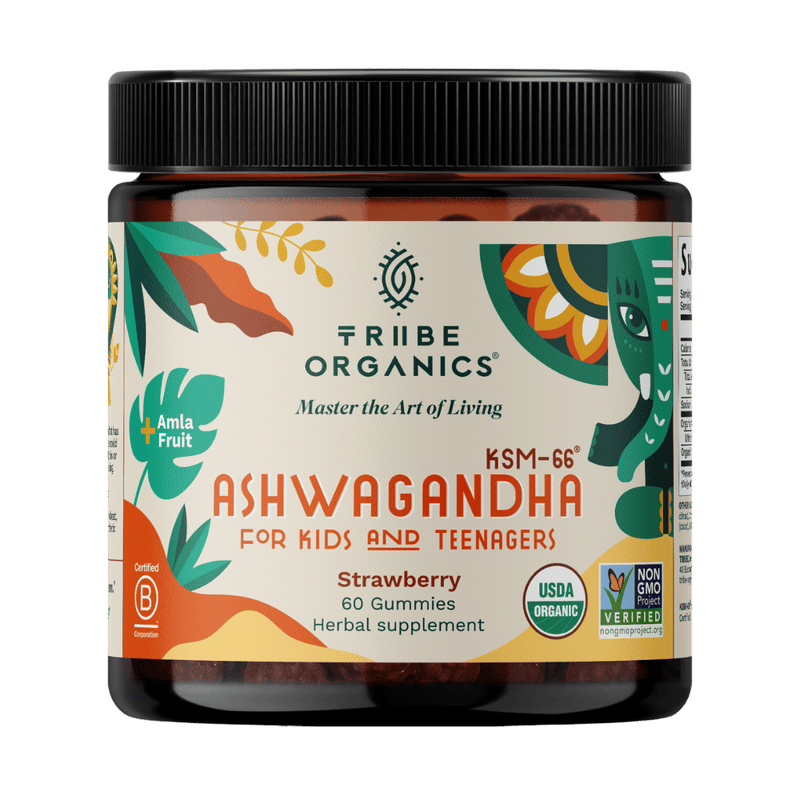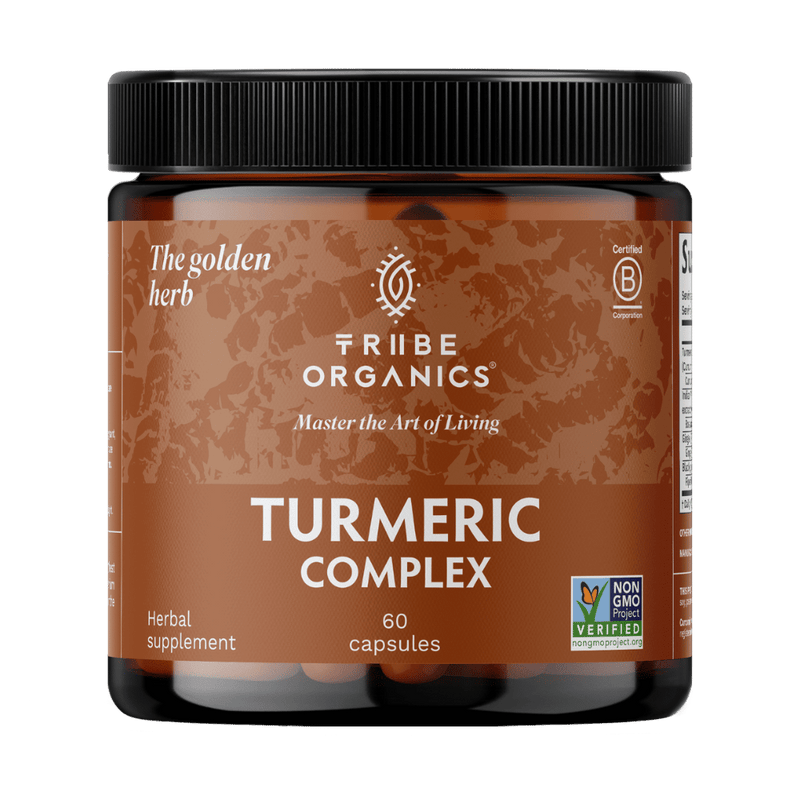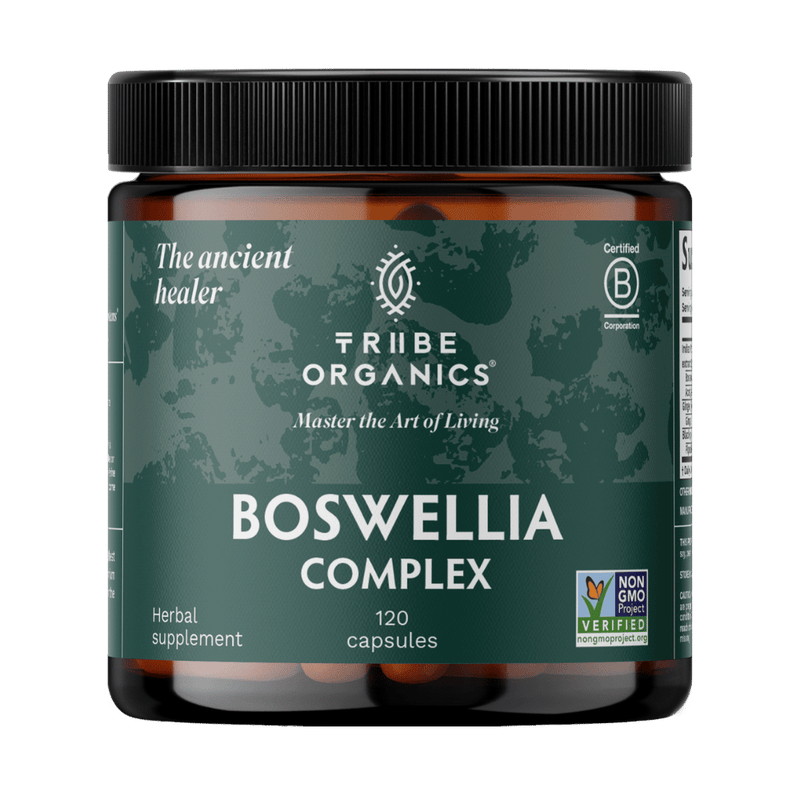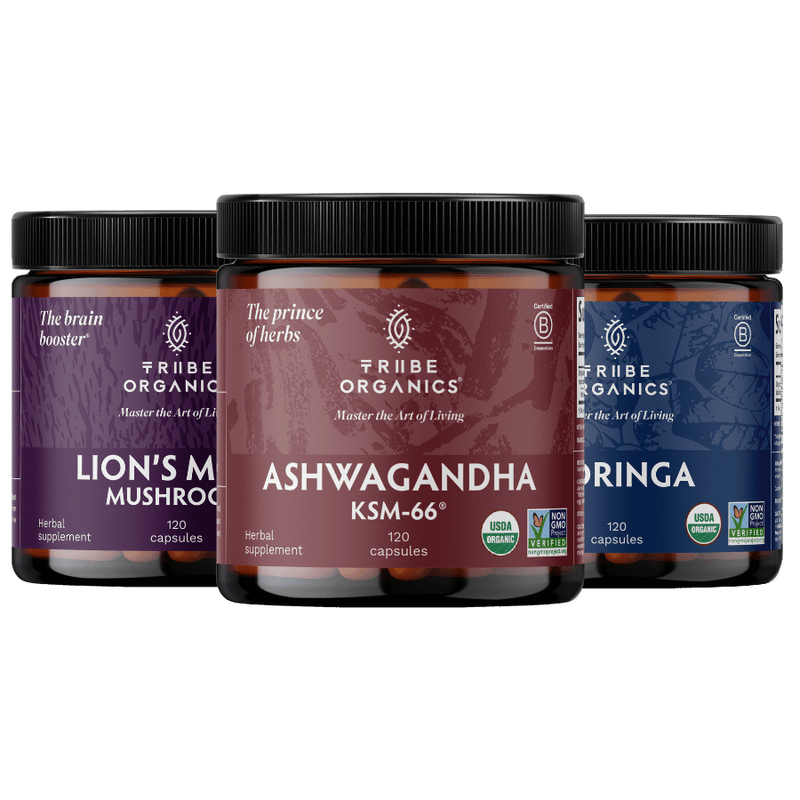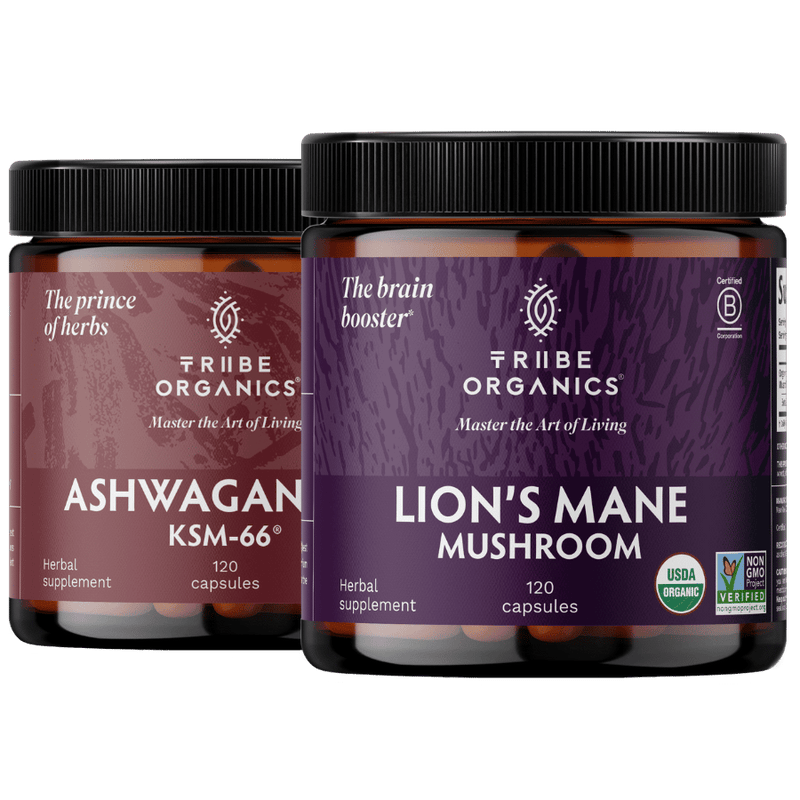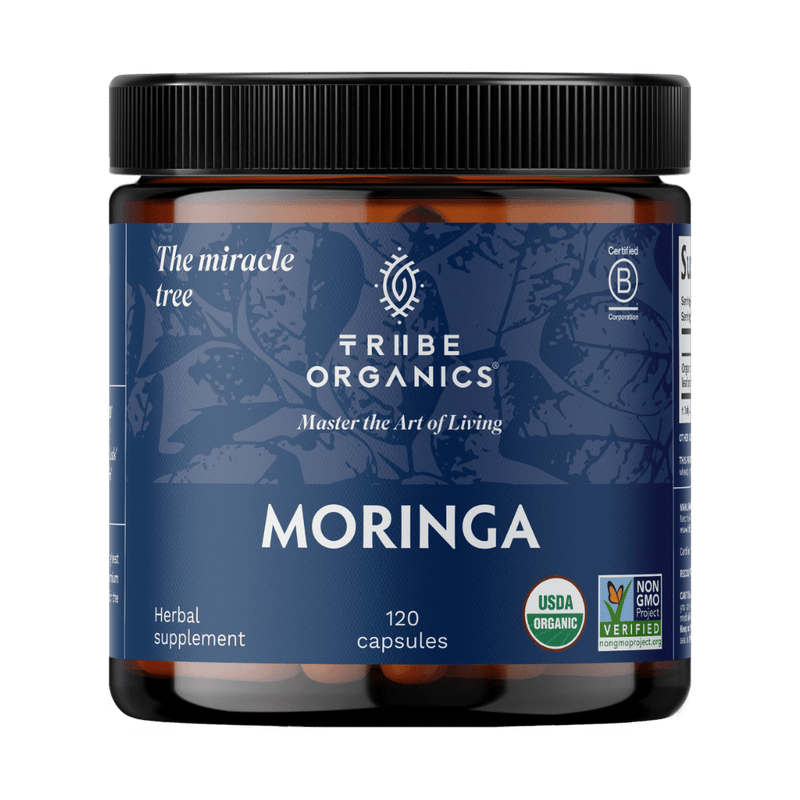Key Takeaways
- Clinical studies demonstrate that ashwagandha supplementation significantly improves memory, attention, and executive function in healthy adults within 30-90 days of consistent use
- Effective dosing ranges from 225mg to 400mg daily, with sustained-release formulations providing optimal bioavailability and once-daily convenience
- The herb enhances cognitive function through multiple mechanisms including cortisol reduction, improved sleep quality, neuroprotective effects, and neurotransmitter support
- Multiple randomized double blind placebo controlled trials show statistically significant improvements in word recall, reaction times, and cognitive flexibility with no reported adverse events
- Ashwagandha works as an adaptogen, specifically targeting stress-related cognitive decline while supporting overall brain health and memory consolidation
What is Ashwagandha and How Does it Support Brain Function
Ashwagandha (Withania somnifera), often called “Indian ginseng,” stands as one of the most revered adaptogenic herbs in Ayurvedic medicine, with over 3,000 years of traditional use for enhancing cognitive function and managing stress. This remarkable herb has earned its reputation through centuries of application in supporting memory enhancement, mental clarity, and overall cognitive health.

As an adaptogen, ashwagandha helps the body maintain homeostasis during stressful conditions that typically impair cognitive performance. The herb contains potent bioactive compounds called withanolides, which are primarily responsible for its therapeutic effects on the brain and nervous system. These compounds readily cross the blood-brain barrier, allowing ashwagandha to directly influence neural pathways involved in memory formation, attention, and executive functioning.
The classification of ashwagandha as an adaptogen is particularly significant for cognitive health. Unlike stimulants that provide temporary cognitive boosts followed by crashes, adaptogens work to normalize physiological functions over time. This means ashwagandha can help reduce the negative impact of chronic stress on cognitive function while simultaneously supporting the brain’s natural capacity for learning, memory consolidation, and mental performance.
Research has identified that ashwagandha root extract contains the highest concentration of bioactive compounds, making it the preferred form for cognitive enhancement. The herb’s ability to modulate stress hormones, particularly cortisol, creates an optimal internal environment for cognitive functions to flourish. This dual action—reducing cognitive inhibitors while enhancing cognitive promoters—sets ashwagandha apart from many other natural cognitive enhancers.
How Ashwagandha Enhances Cognitive Function
The mechanisms through which ashwagandha improves cognitive function are multifaceted and scientifically well-documented. Understanding these pathways helps explain why clinical trials consistently demonstrate significant improvements in memory, attention, and executive function among participants taking ashwagandha supplements.
Cortisol Reduction and HPA Axis Regulation
Chronic stress represents one of the most significant threats to optimal cognitive performance. When stress becomes persistent, elevated cortisol levels directly impair memory formation, attention span, and decision-making abilities. Ashwagandha’s primary mechanism for cognitive enhancement involves normalizing the hypothalamic-pituitary-adrenal (HPA) axis, which controls the body’s stress response.
Multiple clinical trials have documented ashwagandha’s ability to reduce serum cortisol levels by up to 30% in stressed individuals. This cortisol reduction creates a cascade of cognitive benefits, as lower stress hormone levels allow the brain to allocate more resources to higher-order thinking processes rather than stress management. The result is improved cognitive performance across multiple domains, including working memory, attention, and cognitive flexibility.
Neuroprotective Mechanisms
Ashwagandha provides robust neuroprotective effects through its potent antioxidant and anti-inflammatory properties. The herb’s bioactive compounds neutralize free radicals that can damage brain cells and interfere with neural communication. This protection is particularly important for memory-forming regions like the hippocampus, where oxidative stress can significantly impair new learning and memory consolidation.
Clinical research has shown that ashwagandha supplementation upregulates proteins involved in neuroplasticity—the brain’s ability to form new neural connections. This enhanced neuroplasticity directly supports improved memory formation and cognitive adaptability. Additionally, the herb appears to reduce neuronal apoptosis (cell death) in critical brain regions, providing long-term protection against cognitive decline.
Neurotransmitter Support and Sleep Quality
Ashwagandha influences several neurotransmitter systems crucial for cognitive function. The herb exhibits GABAergic activity, promoting relaxation and reducing anxiety that can interfere with cognitive performance. Simultaneously, research suggests ashwagandha may inhibit acetylcholinesterase, an enzyme that breaks down acetylcholine—a neurotransmitter essential for learning and memory.
Perhaps most importantly for cognitive function, ashwagandha significantly improves sleep quality. Multiple studies have documented better sleep duration, reduced sleep latency, and improved sleep efficiency among participants taking ashwagandha. Since memory consolidation occurs primarily during sleep, these improvements in sleep quality directly translate to enhanced memory formation and cognitive performance during waking hours.

Clinical Evidence for Memory and Cognitive Benefits
The scientific evidence supporting ashwagandha’s cognitive and memory enhancement effects comes from rigorous clinical trials conducted across diverse populations. These studies provide compelling evidence for the herb’s effectiveness in improving various aspects of cognitive function.
Key Research Studies and Findings
A landmark 90-day randomized controlled trial evaluated the effects of 300mg sustained-release ashwagandha in stressed adults using the comprehensive CANTAB cognitive assessment battery. Participants receiving ashwagandha showed statistically significant improvements in three primary cognitive domains: visual memory, new learning ability, and working memory. Specifically, the study documented significant improvements in pattern recall (PALFAMS) and substantial reductions in error rates (PALTEA) compared to the placebo group. Additionally, the consumption of Ashwagandha SR capsules for 90 days resulted in improved psychological well-being measured by the Oxford Happiness Questionnaire.
Another significant clinical trial examined both acute and 30-day effects of ashwagandha supplementation in healthy adults. Participants received either 225mg or 400mg of liposomal ashwagandha daily. The results demonstrated marked improvements in cognitive flexibility, visual memory, reaction times, and psychomotor performance. Liposomal ashwagandha supplementation also enhanced cognitive function and mood in healthy young adults. Notably, these cognitive improvements were accompanied by significant reductions in perceived stress scale scores, highlighting the connection between stress management and cognitive enhancement.
A particularly compelling study conducted during COVID-19 lockdown conditions examined ashwagandha’s effectiveness during periods of high environmental stress. Despite the challenging circumstances, participants taking ash supplementation showed significant improvements in immediate and general memory, attention span, and executive functioning compared to baseline values and placebo groups. Participants consuming Ashwagandha also reported improvements in perceived stress and anxiety levels after 30 days of supplementation.
Specific Cognitive Improvements Documented
Human clinical research facility studies have consistently documented several specific cognitive improvements following ashwagandha supplementation. Visual memory enhancement represents one of the most robust findings, with participants showing improved ability to recognize and recall visual patterns and sequences. This improvement is particularly relevant for daily activities requiring spatial memory and visual-spatial processing.
Attention and vigilance improvements have been measured through computerized cognitive assessments that track reaction times and error rates. Participants taking ashwagandha demonstrate faster correct response reaction times and significantly fewer attention lapses during sustained cognitive tasks. These improvements in sustained attention directly translate to better performance in work and academic settings.
Executive function enhancements include improved cognitive flexibility—the ability to switch between different mental tasks or adapt thinking to new situations. Clinical trials have documented better performance on tasks requiring working memory, inhibitory control, and cognitive shifting among participants receiving ashwagandha compared to placebo groups.

Memory Enhancement Mechanisms
Understanding how ashwagandha specifically enhances memory provides insight into its therapeutic potential for addressing mild cognitive impairment and age-related memory decline. The herb’s memory-enhancing effects operate through several interconnected mechanisms that support both memory formation and retrieval.
Memory Consolidation Through Sleep Improvement
Memory consolidation—the process by which short-term memories become stable long-term memories—occurs primarily during sleep. Ashwagandha’s well-documented ability to improve sleep quality directly supports this critical cognitive process. Clinical trials have shown that participants taking ashwagandha experience deeper, more restorative sleep, which is essential for memory consolidation.
The herb’s influence on sleep architecture appears to optimize the stages of sleep most important for memory processing. During deep sleep phases, the brain transfers information from temporary storage areas to long-term memory networks. By improving sleep quality and reducing sleep disruption, ashwagandha creates optimal conditions for this memory consolidation process.
Hippocampal Function and Neurogenesis
The hippocampus serves as the brain’s primary memory formation center, and ashwagandha appears to specifically support hippocampal function. Preclinical studies have documented the herb’s ability to promote neurogenesis—the formation of new brain cells—in the hippocampus. This neurogenesis is directly linked to improved learning capacity and memory formation.
Additionally, ashwagandha protects existing hippocampal neurons from stress-induced damage. Chronic stress typically causes hippocampal atrophy, leading to memory problems and learning difficulties. By reducing stress hormones and providing neuroprotective compounds, ashwagandha helps maintain healthy hippocampal structure and function throughout life.
Cholinergic System Enhancement
The cholinergic neurotransmitter system plays a crucial role in learning and memory processes. Ashwagandha’s potential inhibition of acetylcholinesterase helps maintain higher levels of acetylcholine, the primary neurotransmitter involved in memory formation and retrieval. This mechanism is particularly relevant for addressing age-related memory decline, as acetylcholine levels naturally decrease with aging.
Clinical research has shown that individuals taking ashwagandha demonstrate improved episodic memory—the ability to recall specific events and experiences. This improvement in episodic memory is directly linked to enhanced cholinergic function and may help prevent or slow memory decline associated with normal aging.
Optimal Dosage and Timing for Cognitive Benefits
Determining the optimal dosage and timing for ashwagandha supplementation requires understanding the clinical evidence and considering individual factors that influence absorption and effectiveness. Research from multiple randomized controlled trials provides clear guidance for maximizing cognitive benefits while maintaining safety.
Evidence-Based Dosage Recommendations
Clinical trials have established that effective doses for cognitive enhancement range from 225mg to 400mg daily, with most studies showing statistically significant differences compared to placebo groups within this range. The 300mg sustained-release formulation has demonstrated particularly strong results in 90-day studies, showing significant improvements in cognitive function tests without any reported adverse events.
Lower doses around 225mg have proven effective when using enhanced delivery systems such as liposomal formulations. These advanced delivery methods improve bioavailability, allowing smaller doses to achieve therapeutic blood levels. The 400mg dose has shown benefits for both acute ashwagandha supplementation (single-dose effects) and chronic supplementation protocols.
Individual factors including body mass index, baseline stress levels, and overall health status may influence optimal dosing. Clinical and healthy populations in research studies have typically started with lower doses and increased gradually based on response and tolerance.
Timing and Formulation Considerations
The timing of ashwagandha supplementation can significantly impact its cognitive benefits. Most clinical trials have administered doses with breakfast to optimize absorption and minimize potential gastrointestinal effects. Taking ashwagandha with food also helps stabilize blood levels throughout the day.
Sustained-release formulations offer advantages for cognitive enhancement because they provide steady blood levels over 8-12 hours. This consistent exposure supports the herb’s adaptogenic effects and maintains cognitive benefits throughout the day. Single daily dosing with sustained-release formulations also improves compliance compared to multiple daily doses.
For individuals primarily seeking sleep-related cognitive benefits, evening dosing may be appropriate. However, most research supporting cognitive enhancement has used morning or breakfast-time dosing, making this the preferred approach for most users.

Safety Profile and Considerations
The safety profile of ashwagandha for cognitive enhancement is exceptionally well-documented, with multiple clinical trials reporting no serious adverse events at therapeutic doses. Understanding this safety data helps individuals make informed decisions about incorporating ashwagandha into their cognitive health regimen.
Clinical Safety Data
Extensive clinical research involving hundreds of participants has consistently demonstrated ashwagandha’s excellent safety profile. In randomized double blind placebo controlled studies lasting up to 90 days, no participants experienced serious adverse events related to ashwagandha supplementation. Clinical blood profiles, including liver function markers (AST, ALT), kidney function indicators (serum creatinine, blood urea nitrogen), and other safety parameters remained within normal ranges throughout treatment periods. Five subjects withdrew voluntarily from one study, but no participants withdrew due to perceived side effects.
Blood pressure monitoring in clinical trials has shown no negative effects on either systolic or diastolic blood pressure. In fact, some studies have documented modest improvements in resting blood pressure among participants with elevated baseline values. Body weight remained stable throughout clinical trials, indicating no significant metabolic disruptions.
The absence of cognitive impairment or sedation represents a significant safety advantage compared to many pharmaceutical cognitive enhancers and anxiolytics. Unlike benzodiazepines or other sedating medications, ashwagandha improves cognitive performance without causing drowsiness or mental fogginess.
Contraindications and Precautions
While ashwagandha demonstrates excellent safety in clinical and healthy populations, certain contraindications require consideration. Pregnant and lactating women should avoid ashwagandha supplementation due to insufficient safety data in these populations. The herb’s potential effects on hormonal systems make this precaution particularly important.
Individuals with autoimmune conditions such as rheumatoid arthritis, lupus, or multiple sclerosis should consult healthcare providers before using ashwagandha. The herb’s immune-modulating effects could potentially interact with autoimmune disease processes, though specific interactions remain theoretical rather than clinically documented.
Those taking medications for blood pressure, diabetes, or immunosuppressive drugs should seek medical guidance before beginning ashwagandha supplementation. While direct drug interactions are rare, the herb’s physiological effects could theoretically influence medication effectiveness.
Comparing Ashwagandha to Other Cognitive Enhancers
Understanding how ashwagandha compares to other cognitive enhancement options helps individuals make informed choices about their brain health strategy. The herb’s unique combination of stress reduction and cognitive enhancement sets it apart from many alternatives.
Advantages Over Synthetic Nootropics
Unlike synthetic nootropics that often provide short-term cognitive boosts followed by crashes, ashwagandha offers sustainable cognitive enhancement through its adaptogenic properties. The herb addresses underlying factors that impair cognitive function—particularly chronic stress—rather than simply providing temporary stimulation.
The safety profile of ashwagandha significantly surpasses many synthetic cognitive enhancers. While pharmaceutical options may carry risks of dependence, tolerance, or significant side effects, ashwagandha demonstrates consistent safety across extended use periods. This safety advantage makes it suitable for long-term cognitive support strategies.
Additionally, ashwagandha provides multiple health benefits beyond cognitive enhancement, including improved sleep quality, reduced stress response, and enhanced physical performance. This comprehensive wellness support contrasts with synthetic options that typically target single pathways or mechanisms.
Comparison with Other Herbal Cognitive Enhancers
When compared to other popular herbal cognitive enhancers like ginkgo biloba or bacopa monnieri, ashwagandha offers unique advantages. While ginkgo primarily improves circulation and bacopa focuses on memory formation, ashwagandha provides broader cognitive support through stress reduction and neuroprotection.
The clinical evidence for ashwagandha’s cognitive effects is particularly robust, with multiple randomized controlled trials demonstrating significant improvements across various cognitive domains. Many other herbal cognitive enhancers lack this depth of human clinical research, relying more heavily on traditional use or preclinical studies.
Ashwagandha’s rapid onset of benefits—with some improvements visible within days to weeks—compares favorably to herbs like bacopa monnieri, which may require months of supplementation to show meaningful effects. This faster response time makes ashwagandha more suitable for individuals seeking relatively quick cognitive improvements.
Who Should Consider Ashwagandha for Cognitive Support
Identifying appropriate candidates for ashwagandha supplementation helps ensure optimal outcomes and safety. Research has defined several populations that may particularly benefit from the herb’s cognitive enhancement effects.
Healthy Adults with Stress-Related Cognitive Issues
The primary target population for ashwagandha cognitive support includes healthy adults experiencing stress-related cognitive decline. Individuals with perceived stress scale scores between 14-24 (moderate to high stress) have shown the most significant improvements in clinical trials. These individuals typically experience symptoms such as difficulty concentrating, memory lapses, and reduced mental clarity during stressful periods.
Professional populations including healthcare workers, corporate executives, and others in high-stress careers may find ashwagandha particularly beneficial. Clinical research conducted during COVID-19 demonstrated the herb’s effectiveness in maintaining cognitive performance during periods of elevated environmental stress.
Students and academic professionals represent another key population, as ashwagandha’s effects on memory consolidation, attention, and learning can directly support academic performance. The herb’s ability to improve sleep quality provides additional benefits for this population, as sleep is crucial for learning and memory formation.
Individuals with Mild Cognitive Concerns
Adults experiencing early signs of cognitive decline or mild cognitive impairment may benefit from ashwagandha’s neuroprotective and cognitive-enhancing effects. While most clinical research has focused on healthy populations, the herb’s mechanisms suggest potential benefits for those with subtle cognitive changes.
The safety profile of ashwagandha makes it an attractive option for individuals seeking to address cognitive concerns before they progress to more serious conditions. Unlike pharmaceutical interventions, ashwagandha can be used proactively to support cognitive health and potentially slow age-related decline.
Older adults maintaining active lifestyles may find ashwagandha helpful for preserving cognitive function and mental sharpness. The herb’s comprehensive approach to brain health—addressing stress, sleep, and neuroprotection—aligns well with healthy aging strategies.

Frequently Asked Questions
Shop best sellers
Explore our collection of favorite items that have gained popularity for their quality and satisfaction.







